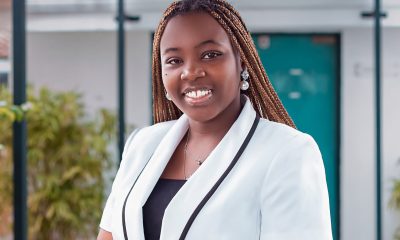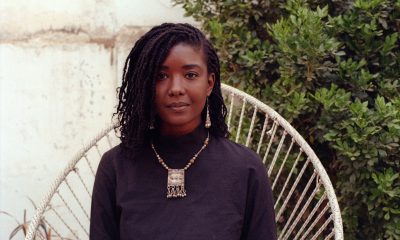NGOs - SDGs
Response to study published in BMJ Global Health “Secular trends in the prevalence of female genital mutilation/cutting among girls: a systematic analysis”

Amref Health Africa, the largest African-led international organisation on the continent, welcomes the recent findings published in BMJ Global Health that the prevalence of female genital mutilation/cutting of girls under the age of 14 has fallen significantly in the 29 countries in Africa that were part of the study.
Using Demographic Health Survey (DHS) and Multiple Indicator Cluster Survey (MICS) data sets from Africa, the study finds that the prevalence of FGM/C for girls under 14 dropped the most in East Africa where it went from 71.4% in 1995 to 8.0% in 2016.
“It is very encouraging to see that decades of effort by organisations, communities and governments in Africa has helped lead to such a significant reduction in the prevalence of FGM/C among this age group,” said Peter Nguura, Director, Amref Health Africa’s End FGM/C Centre of Excellence, based in Nairobi, Kenya.
“In the past 10 years alone, we have certainly seen an increasing number of communities in Kenya and Tanzania abandon the practice through community-led initiatives, such as Alternative Rites of Passage.”
The study also corroborates earlier findings from UNICEF’s report of 2013, another extensive regional study on FGM/C whose data came from 29 countries with the highest FGM/C prevalence. UNICEF’s report revealed that the majority of the populations in these countries actually want FGM/C to end and further projected that some countries in Africa may be capable of attaining total abandonment of FGM/C by 2030.
“This recent study should give the movement to abandon FGM/C in the East Africa region new momentum, and result in combined efforts to accelerate progress,” Mr. Nguura said. “If this does not happen, the reverse could be the case, where the findings give the communities, donors and other stakeholders a reason to relax thereby reversing the gains attained so far.”
 As the researchers of the study underline themselves, even though the findings are based upon large quantitative research (90 sets of survey data, covering 208,195 girls) caution is urged in interpreting these figures. The study is limited to girls under the age of 14, leaving out an untold number of girls aged 14 and older who undergo FGM/C as teenagers, often as part of a cultural ritual that marks their transition from girl to woman.
As the researchers of the study underline themselves, even though the findings are based upon large quantitative research (90 sets of survey data, covering 208,195 girls) caution is urged in interpreting these figures. The study is limited to girls under the age of 14, leaving out an untold number of girls aged 14 and older who undergo FGM/C as teenagers, often as part of a cultural ritual that marks their transition from girl to woman.
In countries where Amref Health Africa currently works with communities to end the practice of FGM/C, national prevalence rates for girls/woman aged 15 to 49 are still high – Kenya 21% , Tanzania 10%, Senegal 25% , for example. It is also important to note that prevalence rates vary greatly across each country, with some communities having rates in the range of 80 to 90%.
In addition, gathering reliable responses from respondents to surveys, like the Demographic Health Survey, for very sensitive issues such as FGM/C can be challenging. When young girls are asked questions, such as: ‘Have you been subjected to female genital cutting?’ their responses may be affected by the fact that FGM/C is prohibited by law in many of the countries in Africa that were part of the study. An under-reporting may occur due to fear that answering the question in the positive will lead to prosecution of relatives if disclosure were to be made about their FGM/C status.
“We agree with the study’s authors that further efforts are urgently needed to eradicate the practice of FGM/C wherever it is happening,” said Mr. Nguura.
“Governments, communities and organisations like Amref Health Africa must use the results of this study as a rallying point to redouble our work to ensure we meet the Sustainable Development Goal target of ending FGM/C by 2030. Communities must be supported to take leadership and ownership of the movement to end FGM/C, and young people must also receive support to work together with their cultural and religious leaders in transgenerational partnerships to mobilise their communities towards abandonment of FGM/C. Implementers need to work in partnerships that empower communities to lead the change of harmful social norms.”
Amref Health Africa is working to end FGM/C in sub-Saharan Africa through solutions created and led by communities themselves, with a focus on ensuring the health and human rights of girls and women are upheld. The organisation does this by supporting communities to hold structured community dialogues where they can freely and deeply interrogate the harmful norms without judgement, and to explore and adopt culturally acceptable alternatives for FGM/C that come without the harmful cut.
To date, more than 16,000 girls in Kenya and Tanzania in communities Amref Health Africa partners with have undergone a community-led Alternative Rite of Passage that does not include FGM/C. The organisation is also committed to partnering with researchers to add to contextual approaches and interventions to bring an end to FGM/C (see Amref Health Africa’s qualitative study published in ‘Culture, Health and Sexuality.’), and has created a vision to end FGM/C in Africa by 2030.
To share lessons it has learned partnering with African communities in supporting them to take leadership and ownership of ending FGM/C, Amref Health Africa has launched its End FGM/C Centre of Excellence. The centre is working towards mobilising diverse partners to strengthen collaboration and global commitments to a world free of FGM/C.
NGOs - SDGs
Mercy Ships and Mission Aviation Fellowship renew partnership to bring life-changing surgery to African patients

Mercy Ships and Mission Aviation Fellowship Team (Image: Supplied).
Humanitarian aid organizations Mercy Ships and Mission Aviation Fellowship (MAF) have renewed their partnership to help bring life-changing surgical care to isolated communities across Africa.
Mercy Ships operates state-of-the-art hospital ships, providing free surgeries and healthcare services to sub-Saharan nations with limited access to safe surgical care. MAF’s purpose is to bring help, hope and healing through aviation to people living in isolation and poverty.
The renewed memorandum of agreement between these two faith-based charities enables Mercy Ships to extend their reach further inland to a broader spectrum of the population across Africa, bolstered by MAF’s logistical support. This partnership, launched in Madagascar, will enable teams to access hard-to-reach areas and transport patients in need of critical surgical interventions. This collaboration provides opportunities for those in the most remote and inaccessible regions of the country. Further joint initiatives are being explored in other African nations.
“Traveling by road in Madagascar can be incredibly challenging due to the rough terrain and poor infrastructure,” Michael Jurgensen, MAF Madagascar Country Director, said. “In many cases, reaching remote villages can take days by car, draining valuable time and energy. However, with MAF Madagascar’s support, the [Mercy Ships] patient selection team can cover vast distances swiftly and safely, enabling them to visit multiple locations within a short period. Flying not only saves time for the selection team, but also ensures the team can travel to evaluate and select patients from the most isolated and underserved areas for surgery on-ship at a later date.
A 2016 study of Madagascar revealed that only 20% of the population can access surgical services within a two-hour timeframe, and up to 95% would face financial ruin if they required surgery (source: BMJ Global Health). With a scarcity of surgeons — approximately 1 for every 100,000 people — the prospect of receiving necessary surgical treatment seems unattainable for many (source: WHO).
Bernard van den Bosch, who has worked for both MAF and Mercy Ships, and current Director of the Africa Services Center at Mercy Ships, expressed his enthusiasm: “We are confidently re-engaging with MAF because together we are stronger. The country of Madagascar has many hard-to-reach areas, and MAF is the key to accessing them. Non-profit organizations can ‘compete,’ but ultimately, we all serve the same goal. I see many opportunities for future collaboration and intensive joint efforts.”
Bastiaan de Waal, Africa Regional Director of MAF, added: “By transporting Mercy Ships teams with our aircraft to the interior of Madagascar, we provide help, hope and healing to residents with the surgical care they desperately need. The need is high in these areas, and these people in isolated communities are equally entitled to care. We are pleased to partner alongside Mercy Ships to support this often-forgotten group. Being each other’s hand and foot is what we are called to do and we have a shared synergy of vision and values.”
This renewed collaboration between MAF and Mercy Ships exemplifies how strategic partnerships can enhance humanitarian efforts, ensuring that more people receive the critical medical care they need. The two organizations previously partnered from 2014 to 2016 in Madagascar and have worked together in Liberia.
Mercy Ships’ hospital ship, the Africa Mercy®, has been docked in Toamasina since February and is delivering surgery and training. The ship is actively collaborating with Madagascar’s Ministry of Health to identify the most pressing needs and strengthen the country’s surgical systems through its education, training, and advocacy program.
NGOs - SDGs
Climate Launchpad: Beyond competition, a catalyst for change

Climate Launchpad Competition 2023 Image.
Despite the success of The Climate Launchpad Competition 2023, Climate Launchpad through the support of Climate-KIC and Irish Aid provided additional support to the participants of the competition through the Post-Climate Launchpad Accelerator. Given that the majority of the participants are early-stage businesses, capacity building is a necessity. The post-competition support is divided into 2, The masterclasses that are being handled by the Climate Launchpad Global team which has participants from over 7 African countries, and The national capacity-building session handled by the Climate LaunchPad Nigeria Team.
The Masterclass session featured a business-changing session on important modules like funding options & Instruments, Gender and Climate, Communications and Storytelling, Climate Impact etc. The national capacity-building session focuses on marketing strategies, practical and optimal use of social media and analytics. As an early-stage business in Nigeria, one of the major challenges you face is reaching and communicating with your potential customers at the market entry stage. The modules were selected after feedback from alumni of the competition.
The modules have been proven to be useful as we have started seeing the tractions of the businesses on social media. Overall, the post-competition support program has been no short of helpful to the businesses. We had 5 active participants from Nigeria who have expressed their gratitude for the post-competition support. Each of them will be given a grant of EUR200 to facilitate their marketing and social media usage.
The National Lead for Climate Launchpad Nigeria, Oluwatosin Ajide affirms the importance of the accelerator program “If we have more competition dedicating their support beyond just the pitching like Climate Launchpad does, We would have more green businesses with solid foundations”. He also thanked the Climate Launchpad central team and the sponsors the Climate-KIC and Irish Aid for their constant support in building the green ecosystem in Nigeria.
NGOs - SDGs
GEANCO Foundation and Archewell Foundation Announce Mental Health Initiative for Nigerian Youth

The GEANCO Foundation and The Archewell Foundation has announced an expansion of their partnership, currently serving girls and young women across Nigeria with menstrual health products and education, to include mental health resources and training for young men and women.
This expanded partnership kicked off with its inaugural Mental Health Summit, taking place over two days and serving nearly 200 students in Abuja, Nigeria’s capital. Prince Harry and Meghan, The Duke and Duchess of Sussex and co-Founders of The Archewell Foundation opened the Summit by delivering inspiring remarks to the young people in attendance.
GEANCO intends to hold summits throughout the country over the next year, providing teenage girls and boys with the information, skills, and coping mechanisms necessary to flourish mentally.
“Youth in Nigeria are critically underserved in terms of mental and menstrual health”, said GEANCO’s CEO Afam Onyema. “I am deeply grateful to The Duke and Duchess for partnering with us to address this crisis and provide this vulnerable but inspiring young generation with what they need to thrive in body, mind and spirit.”
A strong stigma also surrounds mental health in Nigeria, which is critically neglected in the country. The World Health Organization estimates that only 3% of the federal government’s health budget goes to mental health, and while up to one-third of Nigerians have mental health challenges, fewer than 500 mental health professionals serve the country’s 200 million plus citizens. Nigeria’s teens and youth in particular have little to no access to mental health support.
The expanded partnership will also continue the ongoing work to support young girls with menstrual health products and education. An estimated 37 million women and girls in Nigeria experience “period poverty”, meaning they are unable to access or afford menstrual products like pads, tampons, and underwear. Because of the material difficulties caused by period poverty and the deep stigma surrounding menstruation, millions of girls in the country miss school every month, crippling their educational advancement and deepening Nigeria’s already vast levels of gender inequality.
GEANCO Foundation provides critical health care and education services in Nigeria. Its David Oyelowo Leadership Scholarship provides full tuition, medical care, and social and emotional support to young female victims of terrorism and gender inequality in Nigeria.
-

 Afripreneur3 days ago
Afripreneur3 days agoMeet Datari Ladejo, the digital strategist helping brands thrive in the digital economy
-

 Afripreneur10 hours ago
Afripreneur10 hours agoCreativity, Data, and Innovation: Tutu Adetunmbi’s Vision for Africa’s Marketing Future with Stamfordham
-

 Press Release1 day ago
Press Release1 day agoThe 234 Venture Vault Launches Tech Startups and Talents Hunt Across Nigerian Tertiary Institutions
-

 Afripreneur9 hours ago
Afripreneur9 hours agoMeet Nzinga B. Mboup, a Senegalese architect committed to climate-friendly construction for African cities

















